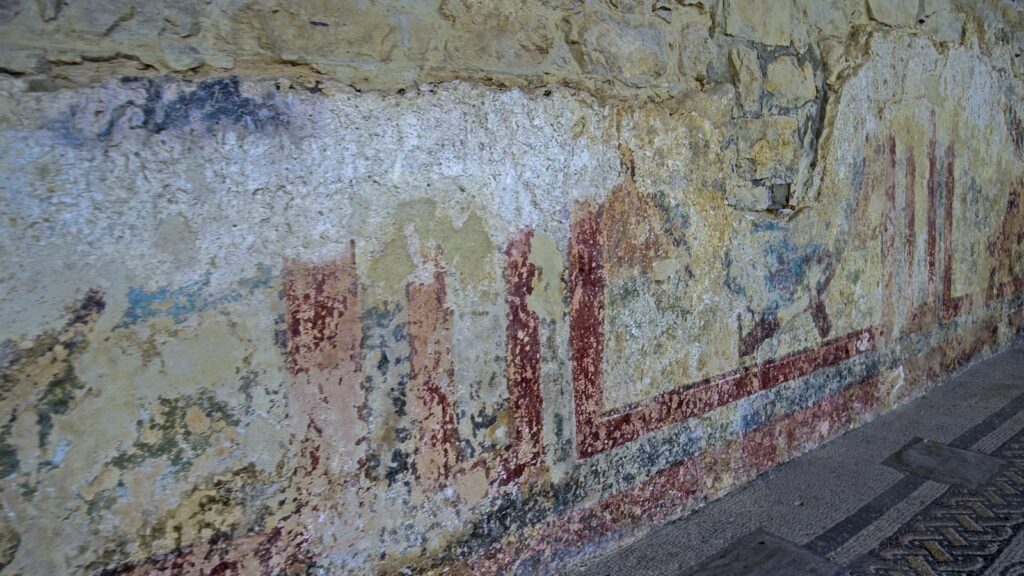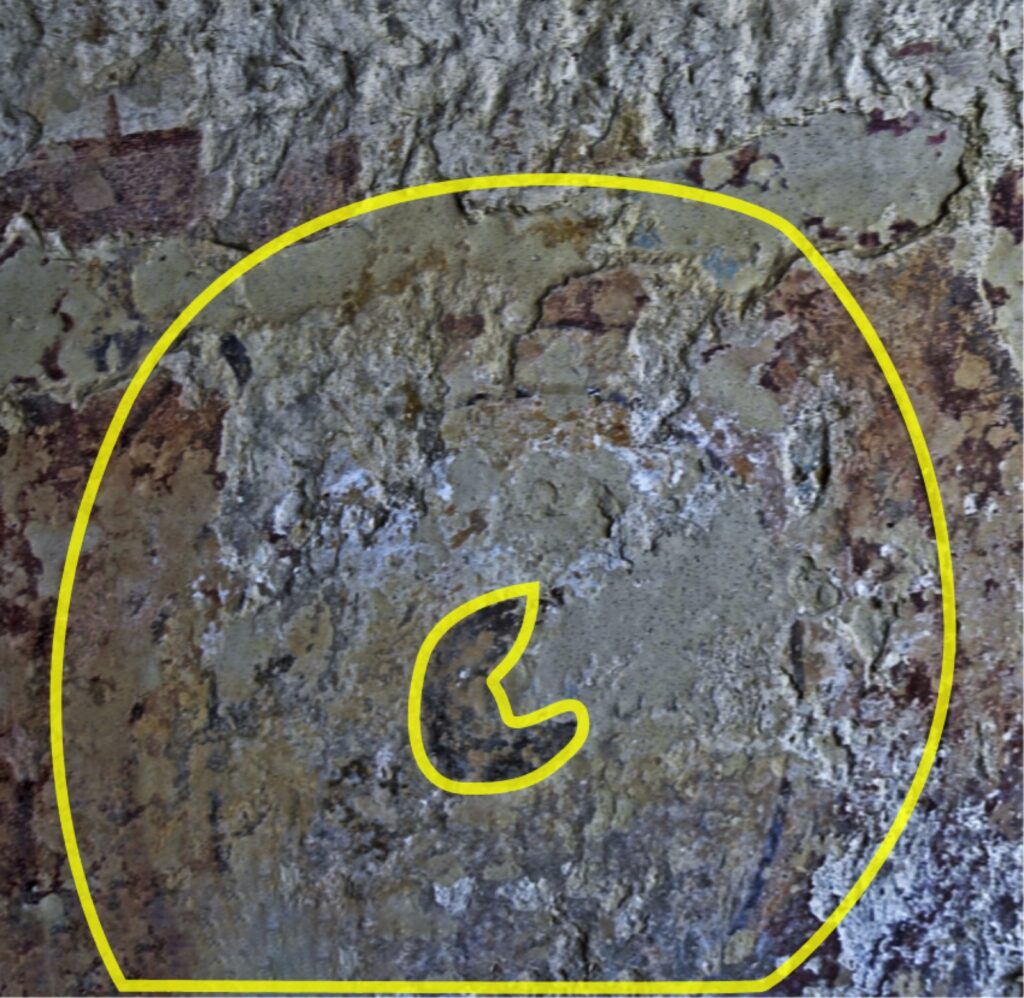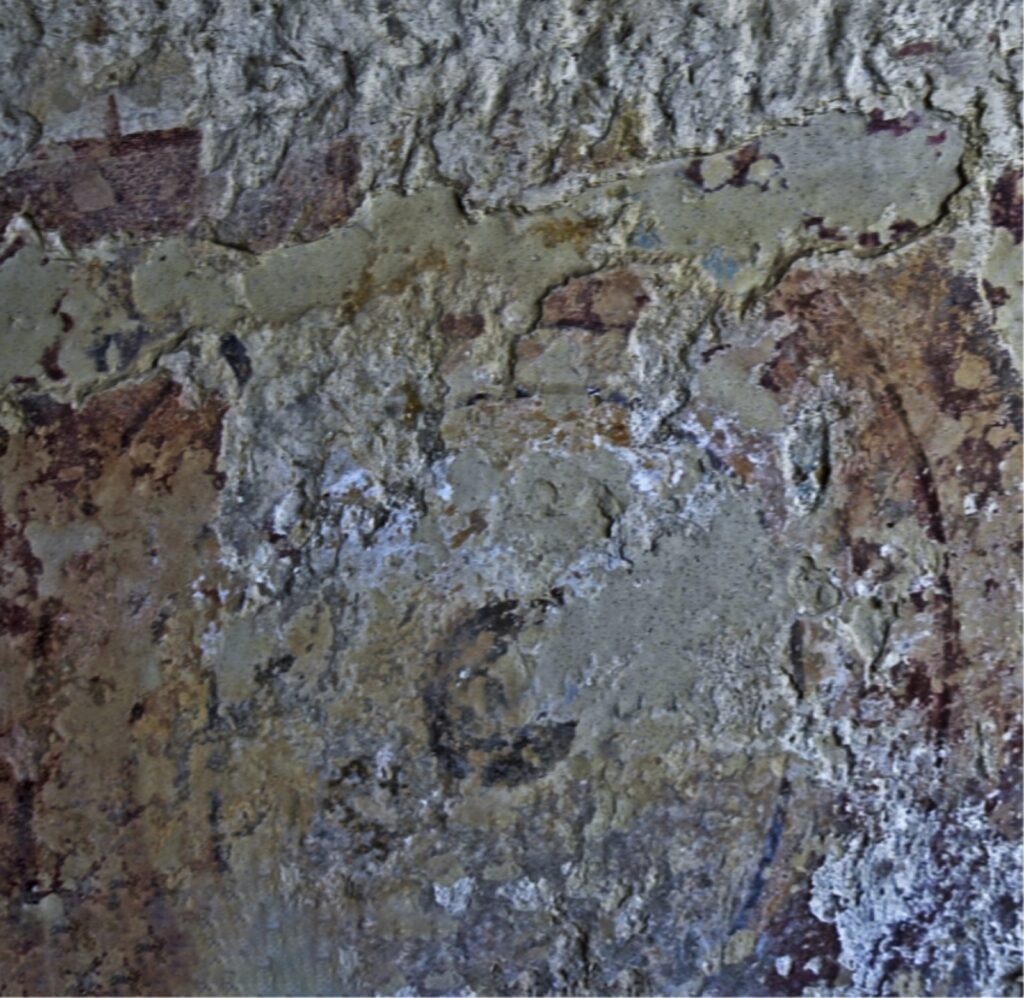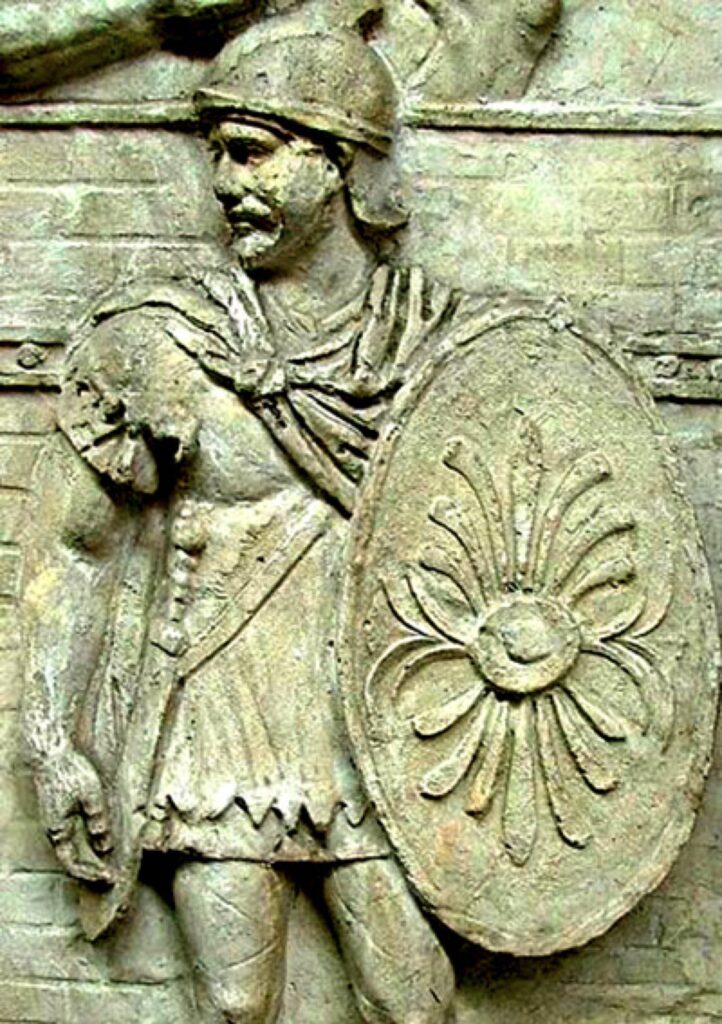While moving through the corridor of the quadrangular peristyle we can distinguish, especially on the southern wall,
fresco
writing, applied over an earlier fresco, which contains male figures inserted individually in large squares.
 All are standing, face on, holding two javelins and a large round shield. Our gaze cannot help but be drawn to the variety of colours and decorations that enrich it around the dark
umbone
All are standing, face on, holding two javelins and a large round shield. Our gaze cannot help but be drawn to the variety of colours and decorations that enrich it around the dark
umbone
, with concentric circles or pairs of segments in different shades, so much so that the characters it protects are driven to the background.


A similar exuberance in the choice of colour can be seen in the copies we have of a summary document of the civil and military organisation, probably written in the first twenty years of the 5th century AD, the Notitia dignitatum et administrationum omnium tam civilium quam militarum, of still uncertain interpretation. It contains depictions of the shield emblems of the various military units of the Eastern and Western Empires. However, the shields of the soldiers occupying the remains of the peristyle fresco do not seem to be connected to the military units shown in the Notitia. On the contrary, the fact that each warrior is distinguished by different symbols does not lead us to think of a specific military group, but a general summary of units. The presence of such an imposing guard decorating the walls certainly suggests that the master of the domus was a very important person.
However, the shields of the soldiers occupying the remains of the peristyle fresco do not seem to be connected to the military units shown in the Notitia. On the contrary, the fact that each warrior is distinguished by different symbols does not lead us to think of a specific military group, but a general summary of units. The presence of such an imposing guard decorating the walls certainly suggests that the master of the domus was a very important person.